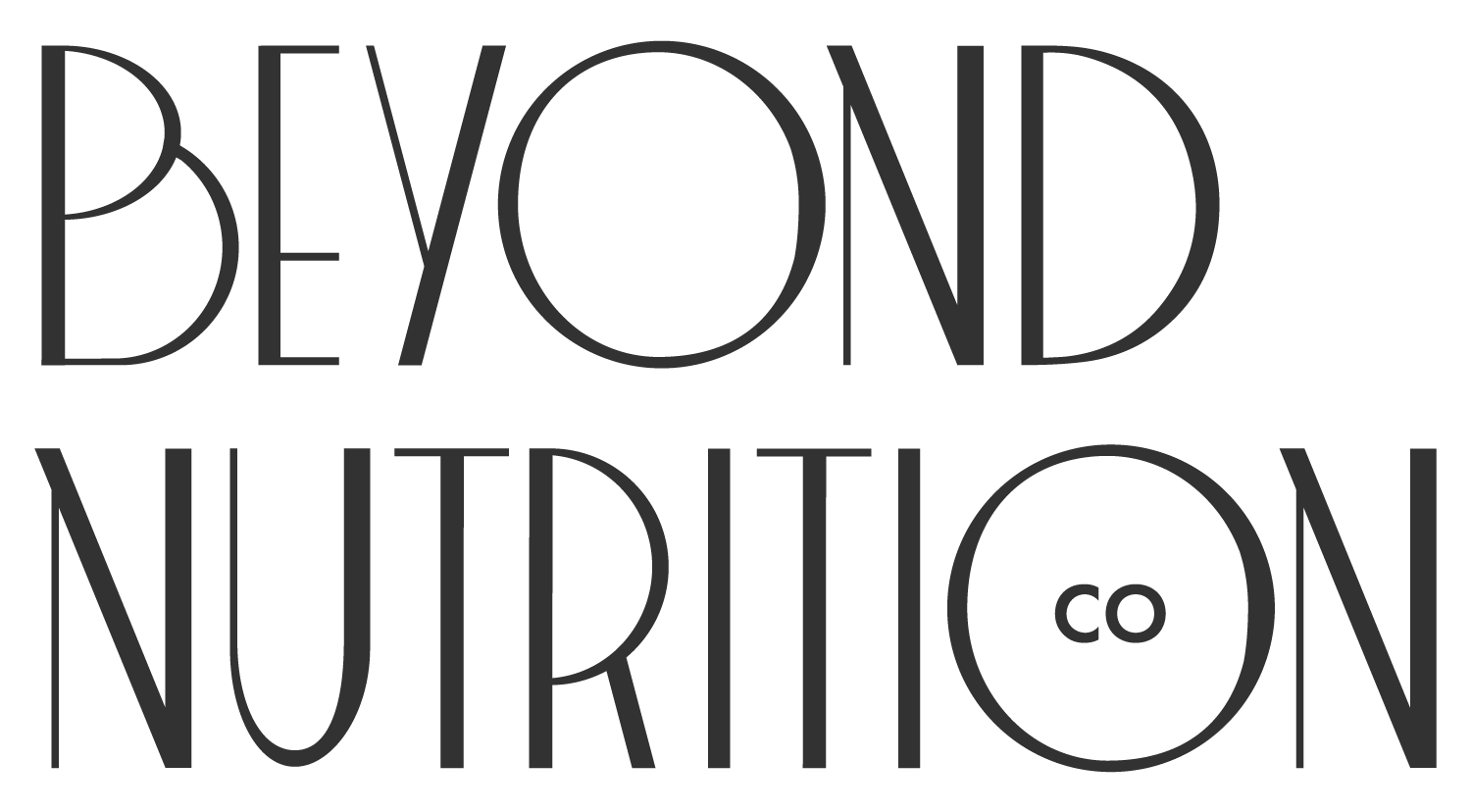Fueling the Thyroid for Fertility
Co-written by Emily Cafarella: Click here to read her bio and learn more about her!
and Sarah Laswell: Sarah is currently working on her M.S. in Nutrition Sciences at the University of Alabama at Birmingham. She hopes to start practicum in the fall and become a Registered Dietitian by the end of 2025. Once she graduates, she would love to help women optimize their hormones and live their best life through exercise and nutrition. Sarah’s favorite things to do are workout, hike, cook, and take care of her baby.
Are you on a journey to boost your fertility and wondering where to start? Look no further than your thyroid – a small gland with a big impact on reproductive health.
If you’ve wondered why your energy levels are always on the down low or why you simply just don’t feel your best, your thyroid could very well be the culprit!
Your thyroid acts as a metabolic regulator, influencing various bodily functions. When it comes to fertility, this gland plays a pivotal role in maintaining hormonal balance, ensuring a conducive environment for conception and a healthy pregnancy.
However, the thyroid is powered by some essential vitamins and minerals! I am sure you know where this is going….
If you are deficient in those nutrients, your body isn’t absorbing them properly, or you simply just aren’t getting enough of them through diet- this can wreak havoc on your thyroid! This can cause a variety of symptoms like intense fatigue, unintended weight gain or loss, issues with hair, skin, and nails, an irregular menstrual cycle, and more.
Understanding Thyroid Function
The thyroid gland produces hormones, primarily thyroxine (T4) and triiodothyronine (T3), which influence metabolism and energy utilization in the body. These hormones are essential for maintaining overall health, and any imbalance can have profound effects on reproductive health. [4]
There are three main things to consider when looking at the thyroid and how it impacts fertility, these are:
Hormone regulation: Thyroid hormones play a key role in regulating the menstrual cycle and ensuring the proper functioning of the reproductive system. Imbalances in thyroid hormones can disrupt ovulation and menstrual regularity, affecting fertility.
Impact on Egg Quality: Thyroid dysfunction has been linked to poor egg quality, a factor that significantly influences fertility. Women with suboptimal thyroid function may experience difficulties in conceiving and an increased risk of miscarriage.
Sperm Health: Thyroid hormones also play a role in male fertility by influencing sperm production and motility. Men with thyroid disorders may face challenges in achieving conception.
Understanding the crucial connection between nutrition, thyroid function, and fertility can be a game-changer. Next, we’ll explore how optimizing your nutrition can pave the way for a healthier thyroid and enhance your fertility journey.
The Key Nutrients
In this section, we’ll uncover the key nutrients that act as the building blocks for optimal thyroid function, creating a harmonious environment for enhanced fertility. Let's delve into the essential elements that fuel both your thyroid and your fertility aspirations.
Iodine
Iodine is a powerhouse that is crucial for creating our thyroid hormones. Thyroxine (T4) and triiodothyronine (T3), the dynamic duo, both contain iodine within their hormone structure. As you can see, iodine truly is the building block for some key thyroid hormones! Try to think of it as the fuel your thyroid needs to ‘rev up’ your ‘metabolic engine.’
If we do not have enough Iodine in our diet, our metabolic regulation can get wonky, altering body temperature, hunger cues, nutrient breakdown, and so much more. Did you know that research shows iodine deficiency is associated with reduced fertility? [1] This shows us how important it is to make sure you are supporting your thyroid!
Recommended daily intake:
Non-pregnant or lactating individuals: 150 μg
Pregnant: 200 μg
Nursing: 290 μg
Key foods rich in iodine:
Seaweed (like kelp!)
Seafood
Bread
Dairy
Eggs
Meat
Selenium
Meet selenium, the often forgotten about superhero that helps convert the inactive T4 to the active T3 in your liver. It is an integral component of several enzymes involved in the metabolism of thyroid hormones, and a crucial part of regular thyroid function.
Not only does selenium help regulate thyroid hormone levels, it also acts as an antioxidant to protect against oxidative stress and free radicals! Reducing oxidative stress and assisting with regular thyroid function is essential for boosting fertility!
Recommended daily intake for women:
Non pregnant or nursing: 55 mcg
Pregnant or nursing: 60-70 mcg
Key foods rich in selenium:
Brazil nuts (they have SO much selenium!)
Chicken
Dairy
Eggs
Halibut
Mushrooms
Sunflower seeds
Tuna
Turkey
Whole grains
Potassium
While potassium doesn’t directly interact with the thyroid, it is an electrolyte that plays a crucial role in maintaining overall health. It supports many physiological processes that indirectly impact the thyroid. Potassium assists heavily with cellular processes, nervous system regulation, and fluid balance. All of this is essential for optimal thyroid function!
Not only is this important to note in fertility for women, but potassium is actually a vital nutrient in seminal fluid or semen! Therefore, if male factor infertility is a concern for you, consider testing potassium levels. [2].
Recommended daily intake for women:
Non-pregnant or nursing: 2,600 mg
Pregnant: 2,600-2,900 mg
Key foods rich in potassium:
Beans, lentils
Potatoes
Winter squash (acorn, butternut)
Spinach, broccoli
Beet greens
Avocado
Bananas
Vitamin A:
Vitamin A is a key component in synthesizing thyroid hormones. Without vitamin A, various physiological processes would not carry out and the thyroid would be significantly impacted! Not only is it a vital component in the synthesis of thyroid hormones, but it also acts as an antioxidant, safeguarding the thyroid gland from the effects of oxidative stress. Furthermore, vitamin A influences gene expression and supports the immune system.
Want to hear more? Vitamin A actually participates in a signaling mechanism to initiate processes in the female gonad and in the male gonad as well. [3] It is incredibly essential for fertility, so needless to say, vitamin A is important!
So let's dive into how much you need and where you can get it.
Recommended daily intake for women:
Non-pregnant: 700 μg
Pregnant: 750-770 μg
Nursing: 1,300 μg
Key foods rich in vitamin A:
Liver (yes, that’s right!)
Dairy products
Eggs
Leafy greens
Orange and yellow vegetables
What About Supplementation?
Wondering about supplementation? As it goes for most things, this is going to be individualized and tailored to your unique situation. Beef liver supplements are often a great option for getting adequate amounts of all nutrients, especially vitamin A! However, always consult with a qualified healthcare practitioner prior to starting new supplements.
Depending on your unique health needs, you may require less of a supplement than others, and more of something else. For example, Iodine can be beneficial for those with hypothyroidism, but can actually harm those with hyperthyroidism. It is very dependent on your needs!
If you feel like you need more support, schedule a FREE consult call with us to dig deeper and uncover the root cause of your symptoms.
Summary
So, there you have it! By nourishing your thyroid with essential nutrients, you create a foundation for hormonal harmony and reproductive well-being. When talking about nutrients that support thyroid health, iodine, selenium, vitamin A, and potassium each have their unique roles, coming together for a harmonious thyroid function.
Embrace a balanced, nutrient-rich diet, stay hydrated, and consider personalized supplementation under professional guidance. Your journey to fertility begins with the nourishment of your body and the harmonious functioning of your thyroid.
Stay tuned for more juicy tips on optimizing your nutrition and here’s to reclaiming that energy you've been missing out on and unlocking the path to a healthier, more fertile you! 🌟
References:
1- Mathews, D. M., Johnson, N. P., Sim, R. G., O'Sullivan, S., Peart, J. M., & Hofman, P. L. (2021). Iodine and fertility: do we know enough?. Human reproduction (Oxford, England), 36(2), 265–274. https://doi.org/10.1093/humrep/deaa312
2- Yeung, C. H., & Cooper, T. G. (2008). Potassium channels involved in human sperm volume regulation--quantitative studies at the protein and mRNA levels. Molecular reproduction and development, 75(4), 659–668. https://doi.org/10.1002/mrd.20812
3- Clagett-Dame, M., & Knutson, D. (2011). Vitamin A in reproduction and development. Nutrients, 3(4), 385–428. https://doi.org/10.3390/nu3040385
4- Dosiou C. (2020). Thyroid and Fertility: Recent Advances. Thyroid : official journal of the American Thyroid Association, 30(4), 479–486. https://doi.org/10.1089/thy.2019.0382








